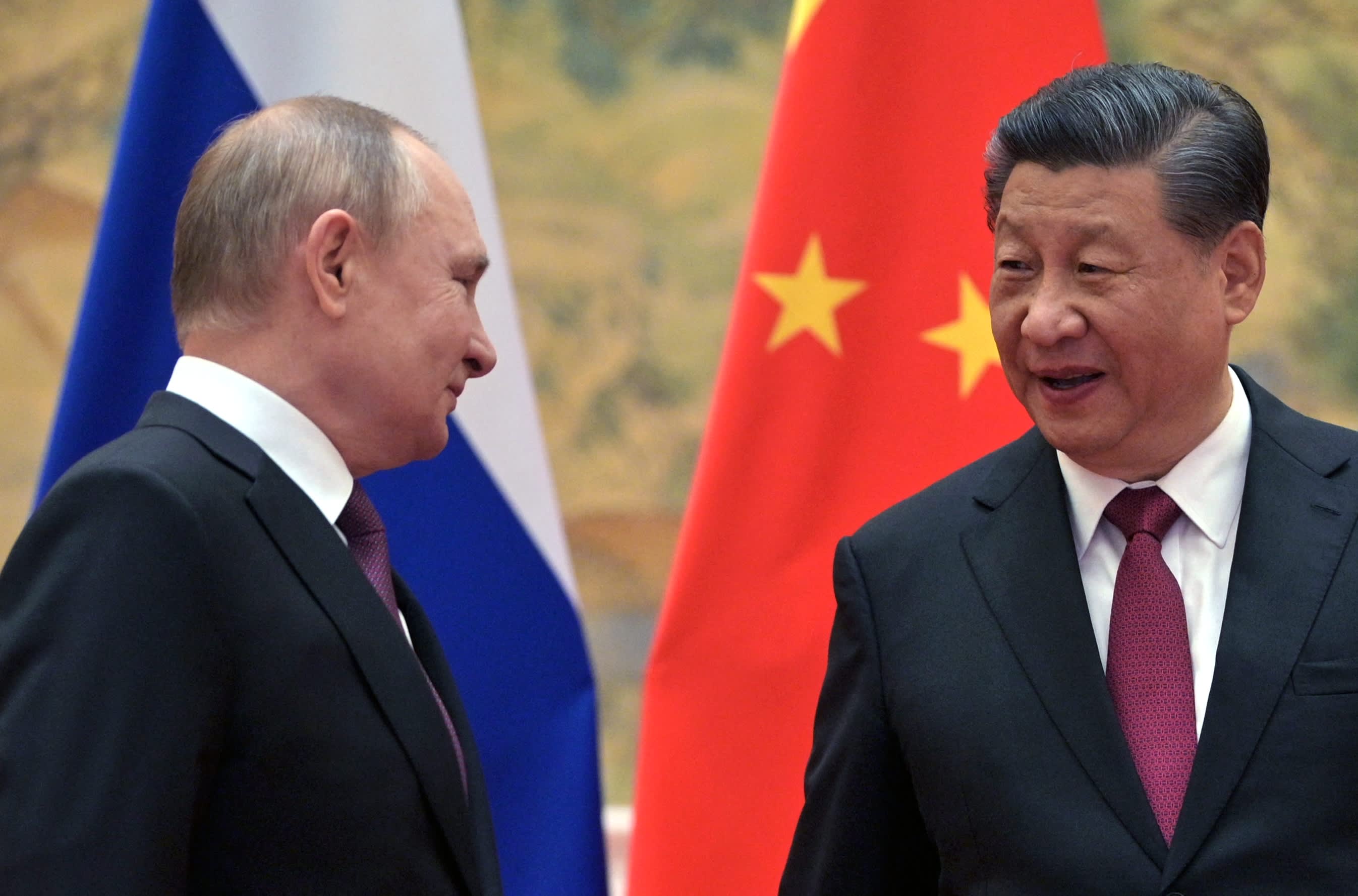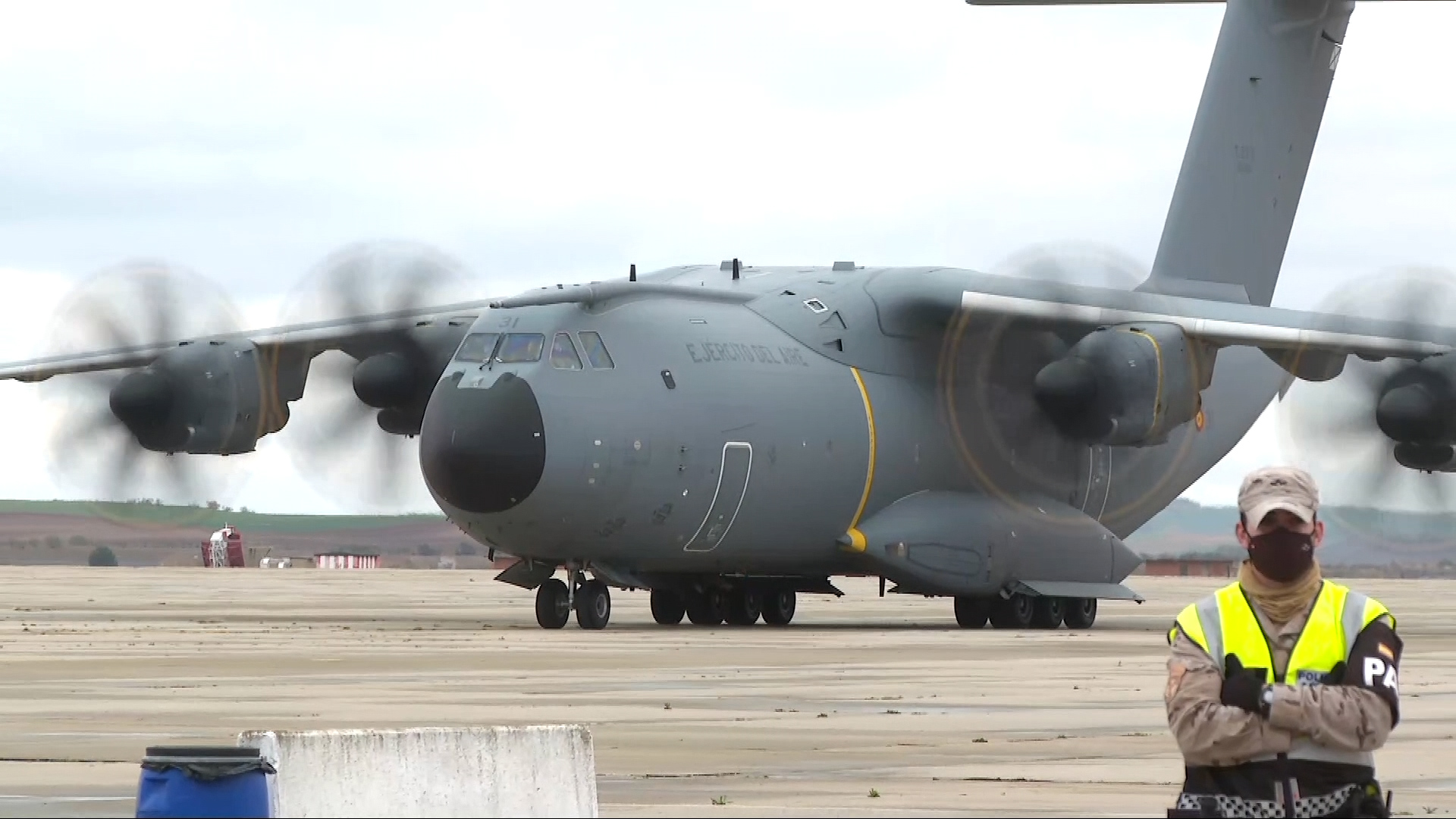President Joe Biden has called the potential for Russian President Vladimir Putin to use chemical weapons in the Ukraine war a “real threat," and local experts agree.
Biden left the White House for a four-day trip to Europe, where he is meeting with key allies to discuss Russia’s invasion of Ukraine.
Harvard scholar Oleh Kotsyuba and Northeastern University professors Mai’a Cross and Pablo Calderon explained Wednesday how likely it is that Putin will use chemical or nuclear weapons on NBC10 Boston's weekly series, "Russia-Ukraine Q&A."
The threat of nuclear annihilation last reached its peak during the Cold War, and experts say the current situation could present a similar conflict. This is a major concern with Russia having the most nuclear weapons stockpiled.
"As the war gets increasingly difficult for Russian troops to sustain on the ground, the likelihood of the use of chemical or nuclear weapons goes up," Cross said. "And so we are seeing the troops struggling further and not having supplies, which is very concerning."
Cross pointed to Russia's purported use of hypersonic missiles in Ukraine in recent days, which she said represents a type of escalation in the same way that chemical, biological and nuclear weapons would. The missiles are being seen as a sign that its military could be resorting to using more destructive weaponry.
However, the Chemical Weapons Convention of 1997 made the use of chemical weapons illegal, so it would be a crime against humanity to use them in Ukraine. Chemical weapons, like nuclear ones, are considered weapons of mass destruction. Despite those laws, experts still think Putin will likely put them to use.
"It's becoming, unfortunately, increasingly likely that we're going to see some sort of use of weapons of mass destruction," Calderon said.
Calderon drew a distinction between chemical weapons and nuclear weapons, noting that there is a cultural taboo that exists around the latter. Putin seems more likely to use chemical weapons rather than nuclear ones, according to Calderon, because nuclear weapons would immediately prompt NATO countries and the west to get more heavily involved.
"I think, to a great extent, there is no coming back from the use of a tactical nuclear weapon, which sounds paradoxical in so many ways," Calderon said. "But the idea is, once you use nuclear weapons, that is very easy to see the escalation and it's very hard to see how the West and NATO in particular does not take action and we stand by and let nuclear escalation take place."
Putin has a track record of using chemical weapons with some success, Calderon noted. Particularly in Syria, where the Russia-backed regime has often sought to blame the rebels it's fighting when it has been accused of using chemical weapons against its own people.
"I think, the thinking of Vladimir Putin, the strategic use of chemical weapons seems to be a valid option. Of course, it is completely illegal and it would be tragic, but I'm afraid that Putin sees it as a valid tactical option," Calderon said. "And the use of nuclear weapons would be a lot harder to justify internationally, but also domestically as well."
The likely possibility of Putin using chemical weapons strengthens Ukrainian President Volodymyr Zelenskyy's repeated requests to implement a no-fly zone over his country, Kotsyuba said. Zelenskyy asked Congress last week to "close the sky" to prevent the Russian airstrikes that are devastating his country, but Biden has said such a move could trigger World War III.
"From my perspective, this entire thing, this entire situation, this entire escalation, even more supports Ukraine's plea for closing the skies by either NATO or some other options," Kotsyuba said. "And I think that the pressure on NATO and as well as on other kind of military powers in the world is going to only rise in that regard."



